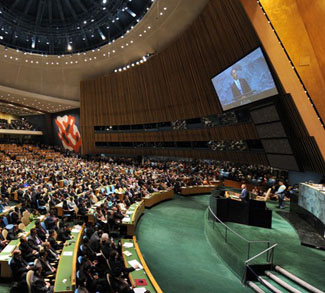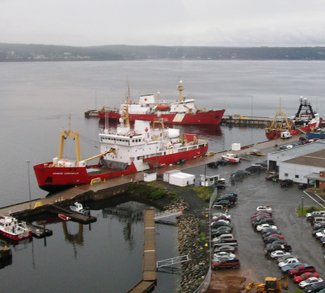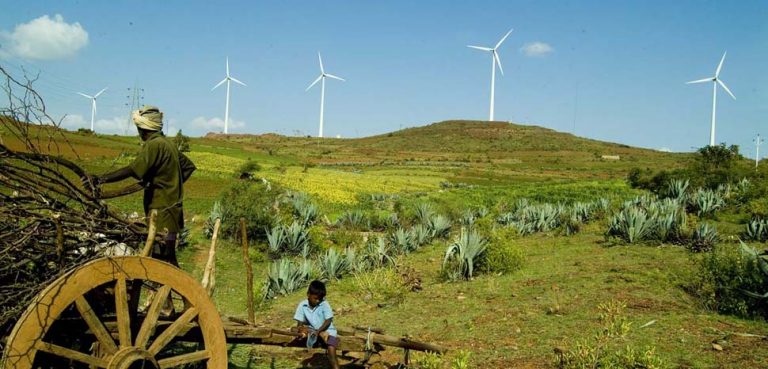On August 2019, a gunman entered a Walmart in El Paso, Texas and opened fire, killing 22 people. In the aftermath of the shooting, public discourse was dominated by the topics of gun safety and the malign influence of hate-fueled rhetoric. While these are important conversations that are likely to generate much debate before the 2020 election, much of the mainstream discourse ignored a major facet of the shooter’s ideology: his identification as an ecofascist. Although this lack of attention was hardly unexpected, it was an important oversight, as the future of domestic extremism in the United States is likely to be increasingly influenced by ecofascism.
What is Ecofascism?
Ecofascism today is an extremist alt-right political ideology that originated and built off of the ideas of individuals like Thomas Malthus, a late 18th century economist who posited that population growth would eventually outstrip the earth’s capacity for food production. Due to the increasing threat of climate change, this strain of extremism is in the midst of a revival. Yet, unlike other climate change proponents, ecofascists do not believe carbon pricing and renewable energy are the means of our salvation. Instead, their ideology sits atop more treacherous pillars, such as deep ecology and the belief in “blood and soil.”
Deep ecology is an environmentalist philosophy that perceives human life as merely one equal factor among many in the global ecosystem. Moreover, the philosophy accepts that the only way to preserve human life is to reduce the human population. Ecofascists ascribe to the more extreme understanding of deep ecology, which is best characterized by the thoughts of Pentti Linkola—a radical Finish deep ecologist. Linkola is infamous for stating:
“What to do, when a ship carrying a hundred passengers suddenly capsizes and there is only one lifeboat? When the lifeboat is full, those who hate life will try to load it with more people and sink the lot. Those who love and respect life will take the ship’s axe and sever the extra hands that cling to the sides.”
In addition to believing in active population control, ecofascists also embrace “blood and soil,” which was a key tenet of the Nazi ideology. The phrase captures ecofascists’ belief that an ethnicity is tied to its land of origin. Ecofascists therefore see multiculturalism and migration as driving factors behind the overpopulation of countries and regions, inevitably contributing to cultural and state instability.
Why It Matters
In his manifesto, the El Paso shooter asserted that the lifestyle common to the United States is destroying the environment and the only solution is to “get rid of enough people.” Additionally, the El Paso shooter also claimed to have been inspired by the Christchurch, New Zealand shooter, who explicitly identified as an ecofascist. Unfortunately, the ideology of ecofascism is poised to become increasingly popular.
The United States has the highest percentage of climate change deniers in the developed world, but analysis shows that Americans are increasingly accepting climate change. It’s likely that this trend will continue. The majority of individuals who have accepted climate change in the past five years point predominantly to one reason for their changing perceptions: extreme weather events. These weather events are projected to increase in frequency and intensity, which will also undoubtedly continue to convince Americans of the existence and threat of climate change.
As Americans increasingly accept climate change, the niche world of ecofascism is likely to grow. The last segment of the population to accept climate change is, by and large, political conservatives. Accordingly, these individuals are also more likely than the average citizen to abhor illegal immigration and even view legal immigration as undermining the culture and security of the United States. These beliefs will be potentially exacerbated by the 25 million to 1 billion environmental refugees estimated to be moving either within their country or across borders by 2050.
While the majority of political conservatives are not extremists and will not embrace extremism in the future, there is a minority vulnerable to radicalization. The segment of the population potentially most susceptible to the ideology of ecofascism does not yet belief in climate change. Yet, as the shifting reality created by climate change forces them to rethink their convictions, ecofascism is likely to be the worldview that aligns best with their disparate viewpoints. Moreover, as susceptible individuals come to believe that they and their families are in real, immediate danger, they will also become more likely to adopt solutions that were previously unthinkable.
We are rapidly hurtling towards a future in which ecofascism is perfectly positioned to thrive. To blunt the impact, the United States must confront at least one aspect of the fear underlying the ideology of ecofascism by seriously working to mitigate the effects of climate change. Making solutions like carbon pricing and renewable energy work now is our best shot at keeping extremist daydreams of genocide off the table in the future.
The views expressed in this article belongs to the author alone and does not necessarily reflect those of any institutions with which the author is associated with or Geopoliticalmonitor.com.




